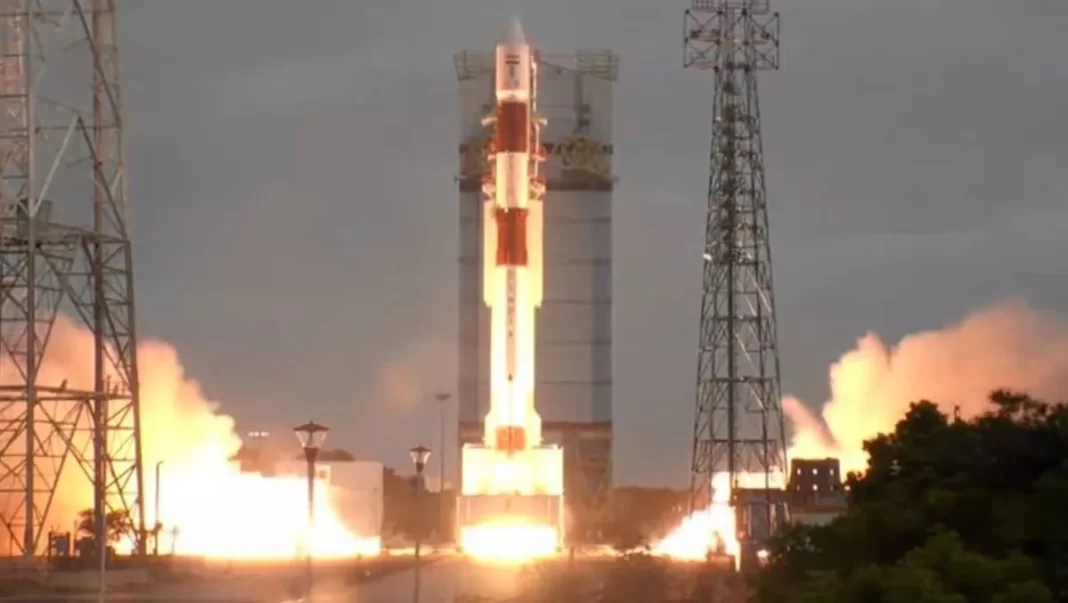In a remarkable start to the New Year, the Indian Space Research Organisation (ISRO) achieved another milestone with the successful launch of India’s first X-Ray Polarimeter Satellite, XPoSat, from the Satish Dhawan Space Centre in Sriharikota, Andhra Pradesh. The launch took place on January 1, 2024, at 9.10 am from the first launch pad, marking the 60th mission of the Polar Satellite Launch Vehicle (PSLV-C58).
Scientific Breakthrough in Space Exploration
The XPoSat mission is a pioneering venture for ISRO, as it aims to delve into space-based polarisation measurements of X-ray emissions from celestial sources. This satellite will provide valuable insights into celestial objects such as black holes, contributing significantly to the scientific understanding of the universe.
The PSLV-C58 rocket, in its 60th mission, flawlessly deployed the XPoSat into Low Earth Orbit, marking a significant achievement for ISRO. The primary objective of this mission is to measure the polarisation of X-rays in the energy band of 8-30 keV from approximately 50 potential cosmic sources. This will facilitate long-term spectral and temporal studies of cosmic X-ray sources, aiding in understanding the radiation mechanism and geometry of celestial bodies.
ISRO Successfully Launches India's First X-Ray Polarimeter Satellite, XPoSat, on New Year's Day #ISRO pic.twitter.com/xHBWruzuJl
— STMN News (@Stmnnews) January 1, 2024
International Context: NASA’s Similar Endeavor
While ISRO takes the lead in space exploration, it’s worth noting that the United States’ National Aeronautics Space Agency (NASA) conducted a similar study in December 2021. The Imaging X-Ray Polarimetry Explorer mission focused on remnants of supernova explosions, particle streams emitted by black holes, and other cosmic events.
Key Payloads of XPoSat
XPoSat carries the POLIX (Polarimeter Instrument in X-Rays), designed by the Raman Research Institute, and XSPECT (X-ray Spectroscopy and Timing), built by the U R Rao Satellite Centre in Bengaluru. These payloads are crucial for measuring polarimetry parameters and conducting spectroscopy and timing studies of X-ray emissions.
Also Read : Yeti Flight Crash: Human Error and Lack of Awareness Blamed in Tragic Nepal Incident
ISRO’s Recent Successes and Future Aspirations
The launch of XPoSat follows ISRO’s successful Gaganyaan Test Vehicle D1 mission in October, showcasing India’s growing prowess in space exploration. In 2023, India achieved a historic soft landing on the Moon with Chandrayaan-3 at the south pole and launched Aditya-L1, the country’s first solar mission.
The Gaganyaan Mission, the establishment of the ‘Bharatiya Antariksha Station’ by 2035, and the ambitious goal of sending the first Indian to the Moon by 2040 stand as testament to India’s commitment to advancing space exploration.
ISRO’s continuous efforts to explore the cosmos and expand our understanding of the universe position India as a key player in the global space community. The successful launch of XPoSat marks a significant step forward in India’s scientific achievements and sets the tone for further advancements in space exploration.



